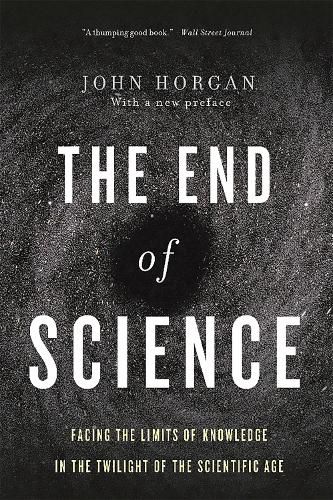Readings Newsletter
Become a Readings Member to make your shopping experience even easier.
Sign in or sign up for free!
You’re not far away from qualifying for FREE standard shipping within Australia
You’ve qualified for FREE standard shipping within Australia
The cart is loading…






In The End of Science, John Horgan makes the case that the era of truly profound scientific revelations about the universe and our place in it is over. Interviewing scientific luminaries such as Stephen Hawking, Francis Crick, and Richard Dawkins, he demonstrates that all the big questions that can be answered have been answered, as science bumps up against fundamental limits. The world cannot give us a theory of everything, and modern endeavors such as string theory are ironic and theological in nature, not scientific, because they are impossible to confirm. Horgan’s argument was controversial in 1996, and it remains so today, still firing up debates in labs and on the internet, not least because-as Horgan details in a lengthy new introduction-ironic science is more prevalent than ever. Still, while Horgan offers his critique, grounded in the thinking of the world’s leading researchers, he offers homage, too. If science is ending, he maintains, it is only because it has done its work so well.
$9.00 standard shipping within Australia
FREE standard shipping within Australia for orders over $100.00
Express & International shipping calculated at checkout
In The End of Science, John Horgan makes the case that the era of truly profound scientific revelations about the universe and our place in it is over. Interviewing scientific luminaries such as Stephen Hawking, Francis Crick, and Richard Dawkins, he demonstrates that all the big questions that can be answered have been answered, as science bumps up against fundamental limits. The world cannot give us a theory of everything, and modern endeavors such as string theory are ironic and theological in nature, not scientific, because they are impossible to confirm. Horgan’s argument was controversial in 1996, and it remains so today, still firing up debates in labs and on the internet, not least because-as Horgan details in a lengthy new introduction-ironic science is more prevalent than ever. Still, while Horgan offers his critique, grounded in the thinking of the world’s leading researchers, he offers homage, too. If science is ending, he maintains, it is only because it has done its work so well.